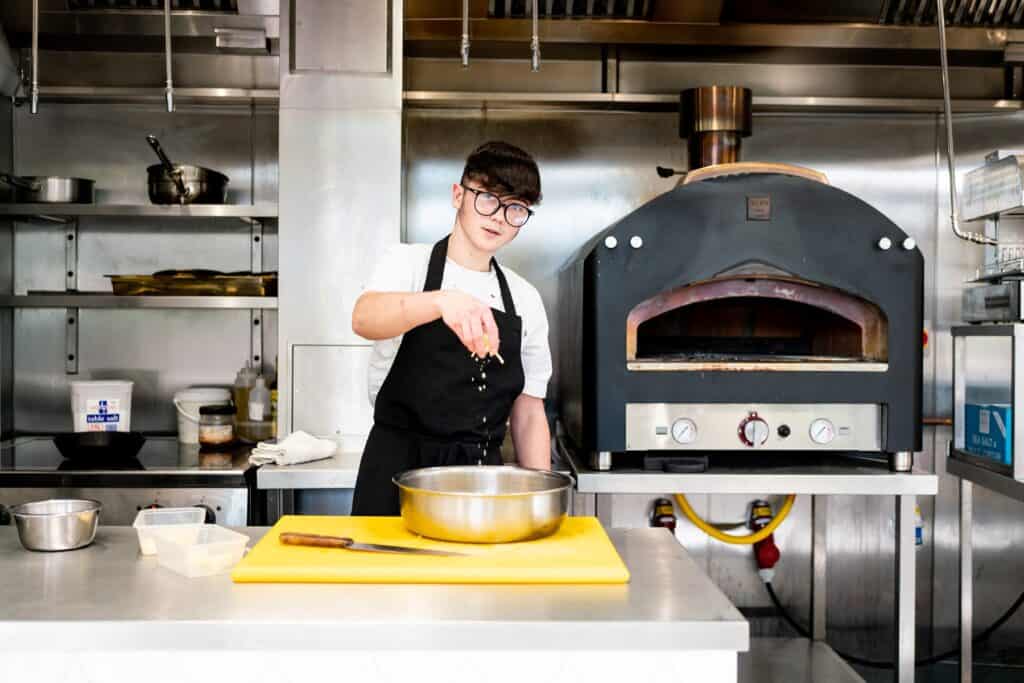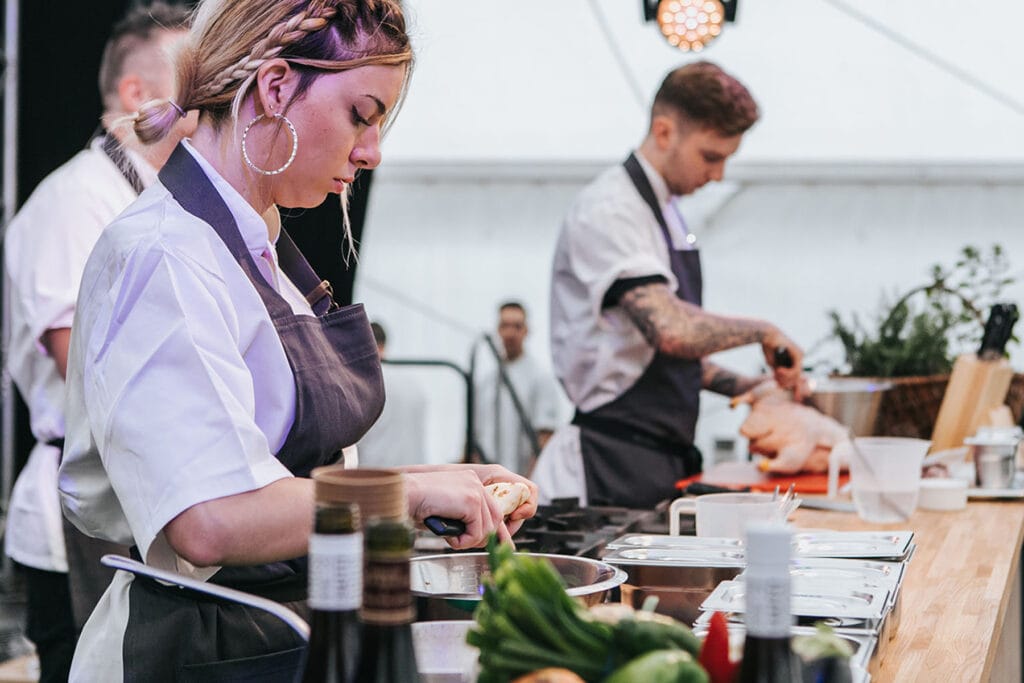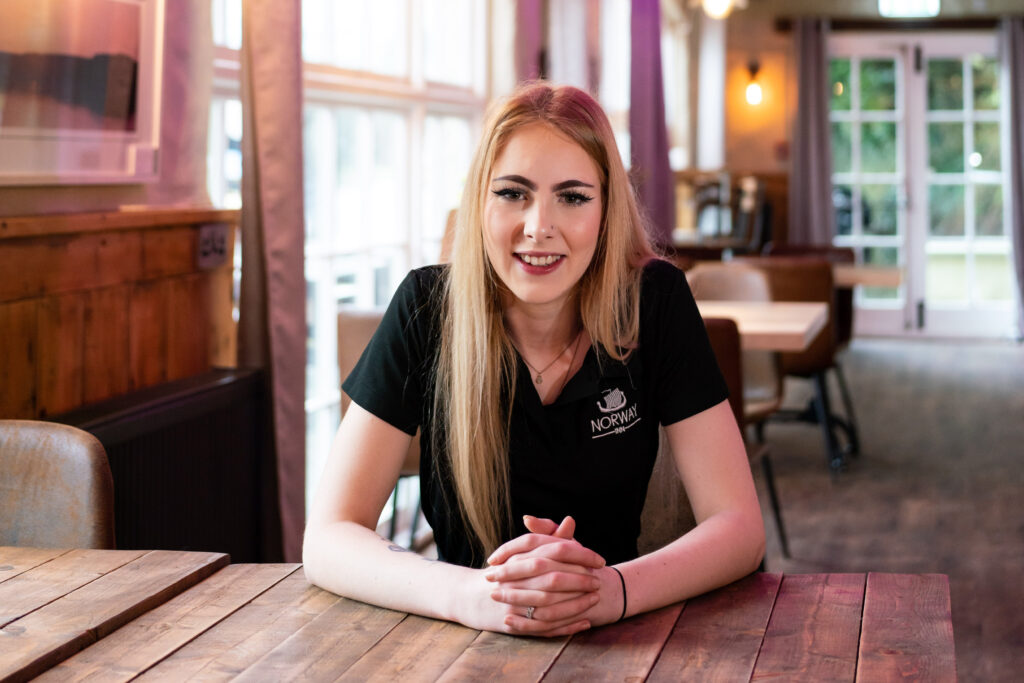New students starting in September: You can find more information about Induction days and submitting your GCSE results in our Start of Year Guide.
Why Choose This Course?
This apprenticeship standard is designed for aspiring chefs who have already completed an appropriate and relevant Level 2 Apprenticeship. This programme is ideal for those looking to specialise in a particular area of a professional kitchen, such as pastry, larder, or butchery. It equips learners with the skills to prepare, cook, and finish complex dishes while overseeing a section of the kitchen. Apprentices will gain experience in supervising team members, maintaining high standards of hygiene, and ensuring the quality and safety of food. This apprenticeship is perfect for advancing culinary careers and contributing to the success of restaurants, hotels, and other hospitality establishments.
Apply for this course
Start date: 22/09/2025
Top Course Highlights
Industry-standard facilities
Highly experienced tutors
Develop skills in line with industry needs
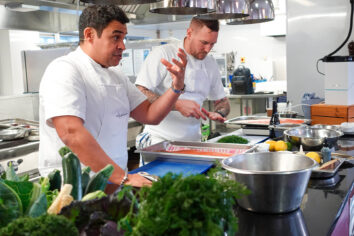
Learn From Sector Experts
Gain invaluable insights and hands-on experience from industry expert tutors who bring real-world knowledge and expertise to the classroom. Their guidance will help you develop the skills and confidence needed to excel in your chosen field.
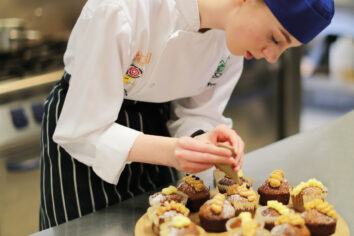
Develop work-related skills
Enhance your practical abilities and gain hands-on experience that directly translates to the workplace. This apprenticeship course focuses on real-world applications, ensuring you are well-prepared to meet the demands of your chosen career.
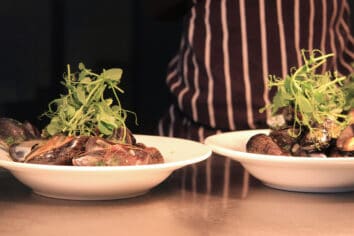
Enjoy professional surroundings
Immerse yourself in a dynamic and supportive environment that mirrors the professional world. This apprenticeship course provides access to state-of-the-art facilities and resources, helping you to thrive and feel confident in your career journey.
What Will I Learn?
Knowledge This apprenticeship covers essential knowledge for running a specific section of a professional kitchen. Apprentices will learn advanced preparation, cooking, and finishing techniques for complex dishes, adhering to organisational brand standards and recipe specifications. They will gain an understanding of food safety, hygiene practices, and the correct storage of deliveries. Additionally, apprentices will be taught how to supervise team members, contribute to menu development, and ensure the quality and safety of food. This comprehensive knowledge base is designed to equip learners with the expertise needed to excel in various culinary environments.
Skills This apprenticeship equips apprentices with a range of essential skills for managing a specific section of a professional kitchen. Apprentices will learn to prepare, cook, and finish complex dishes to high standards, ensuring consistency and quality. They will develop the ability to supervise and coordinate team members, manage stock and resources efficiently, and maintain high standards of hygiene and food safety. Additionally, apprentices will gain skills in menu development, waste minimisation, and effective communication within the kitchen brigade. These skills are crucial for ensuring smooth kitchen operations and delivering an exceptional dining experience.
Behaviours Apprentices are expected to demonstrate professionalism, a strong work ethic, and a commitment to continuous improvement. They should exhibit effective communication, teamwork, and leadership skills, while maintaining high standards of personal and food hygiene. Adaptability, resilience, and a positive attitude towards challenges are also key behaviours for success in this role.
Typical Duties that an Apprentice will carry out in the workplace:
- Preparing Dishes: Using advanced preparation methods to create complex dishes in line with organisational standards and recipe specifications.
- Cooking and Finishing: Cooking and finishing dishes using a variety of techniques to ensure high quality and consistency.
- Supervising Team Members: Overseeing and coordinating team members in receiving, storing, preparing, cooking, and finishing food item.
Where Will It Take Me?
This Apprenticeship Standard opens up numerous career opportunities in the culinary world. Apprentices can progress to roles such as Sous Chef, Head Chef, or Executive Chef in prestigious restaurants, hotels, and other hospitality establishments. Additionally, there are opportunities to specialise further in areas like pastry or butchery, or even move into teaching and training roles within culinary schools. This apprenticeship provides a solid foundation for a successful and dynamic career in the culinary arts.
Assessment Arrangements
The End-Point Assessment (EPA) is a crucial component of apprenticeship standards, designed to evaluate an apprentice’s knowledge, skills, and behaviours (KSBs) acquired during their training. The EPA typically includes a combination of practical assessments, professional discussions, and portfolio reviews, ensuring apprentices are fully prepared for their chosen career. This assessment is carried out independently by an End-Point Assessment Organisation (EPAO), ensuring impartiality and fairness. Employers play a key role in confirming readiness for the EPA, supporting apprentices throughout the process to achieve successful outcomes.
EPA (End Point Assessment) methods
- Knowledge Test
- Observation with Questions
- Professional Discussion (Interview) underpinned by a Portfolio of Evidence
Entry Requirements
Level 2 Apprenticeship and Grade 3 GCSE (D) in English and Maths.
Meet the staff, tour the campus and find out about life as a student at one of the best colleges in the country.

